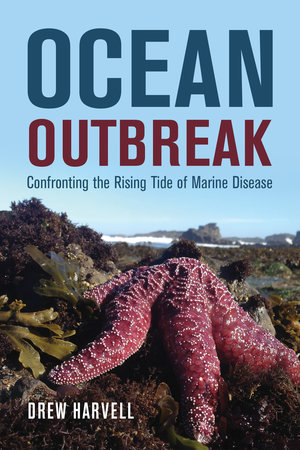The United Nations World Oceans Day on June 8, 2021 focuses the theme The Ocean: Life and Livelihoods. UC Press is spotlighting titles that considers the relationship between people, oceans, and beaches.
The Lure of the Beach
A Global History
by Robert C. Ritchie
The Lure of the Beach is a chronicle of humanity’s history with the coast, taking us from the seaside pleasure palaces of Roman elites and the aquatic rituals of medieval pilgrims, to the venues of modern resort towns and beyond. Robert C. Ritchie traces the contours of the material and social economies of the beach throughout time, covering changes in the social status of beach goers, the technology of transport, and the development of fashion (from nudity to Victorianism and back again), as well as the geographic spread of modern beach-going from England to France, across the Mediterranean, and from nineteenth-century America to the world. And as climate change and rising sea levels erode the familiar faces of our coasts, we are poised for a contemporary reckoning with our relationship—and responsibilities—to our beaches and their ecosystems. The Lure of the Beach demonstrates that whether as a commodified pastoral destination, a site of ecological resplendency, or a flashpoint between private ownership and public access, the history of the beach is a human one that deserves to be told now more than ever before.
The World’s Beaches
A Global Guide to the Science of the Shoreline
by Orrin H. Pilkey, William J. Neal, James Andrew Graham Cooper, Joseph T. Kelley
The World’s Beaches tells how beaches work, explains why they vary so much, and shows how dramatic changes can occur on them in a matter of hours. It discusses tides, waves, and wind; the patterns of dunes, washover fans, and wrack lines; and the shape of berms, bars, shell lags, cusps, ripples, and blisters. What is the world’s longest beach? Why do some beaches sing when you walk on them? Why do some have dark rings on their surface and tiny holes scattered far and wide? This fascinating, comprehensive guide also considers the future of beaches, and explains how extensively people have affected them—from coastal engineering to pollution, oil spills, and rising sea levels.
Ocean Outbreak
Confronting the Rising Tide of Marine Disease
by Drew Harvell
Ocean Outbreak follows renowned scientist Drew Harvell and her colleagues into the field as they investigate how four iconic marine animals—corals, abalone, salmon, and starfish—have been devastated by disease. Based on over twenty years of research, this firsthand account of the sometimes gradual, sometimes exploding impact of disease on our ocean’s biodiversity ends with solutions and a call to action. Only through policy changes and the implementation of innovative solutions from nature can we reduce major outbreaks, save some ocean ecosystems, and protect our fragile environment.


